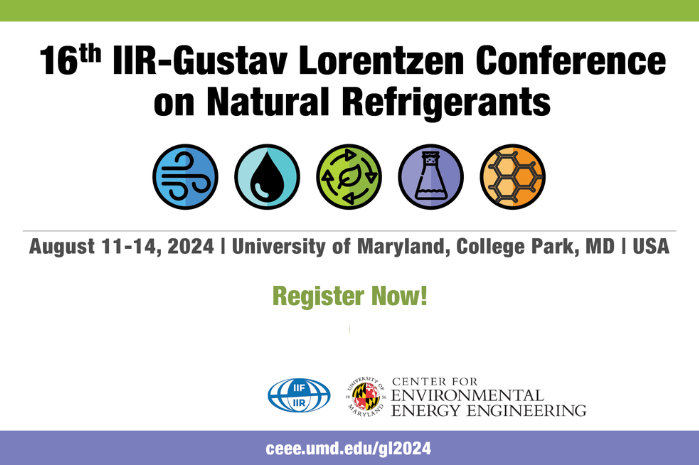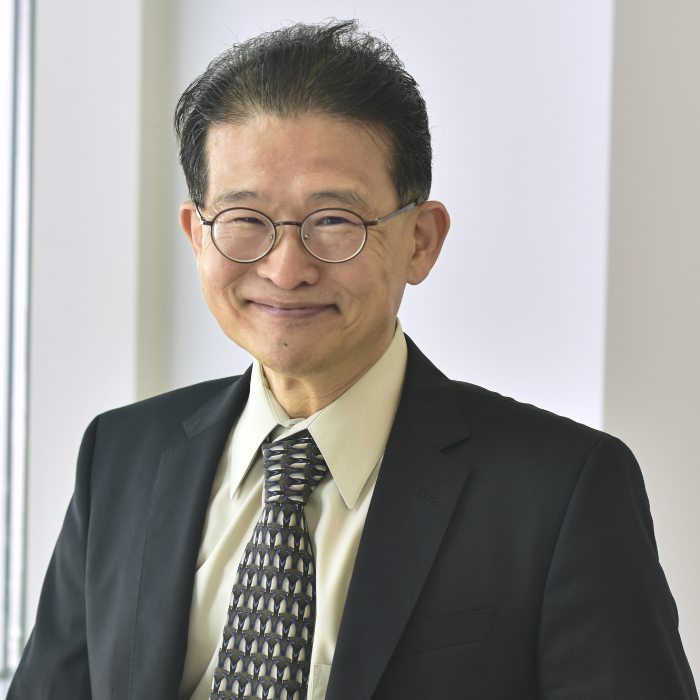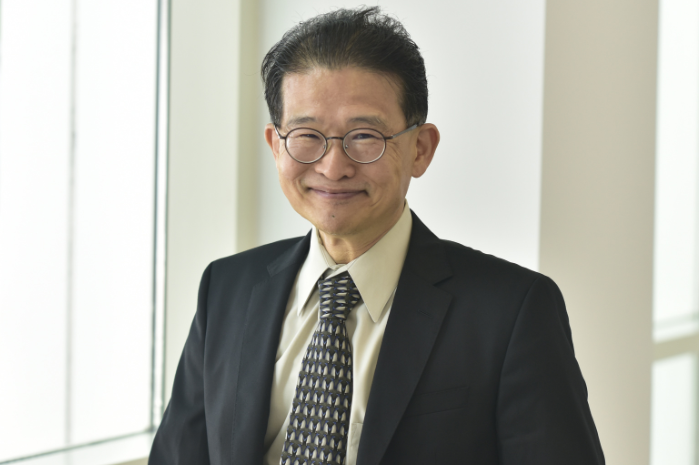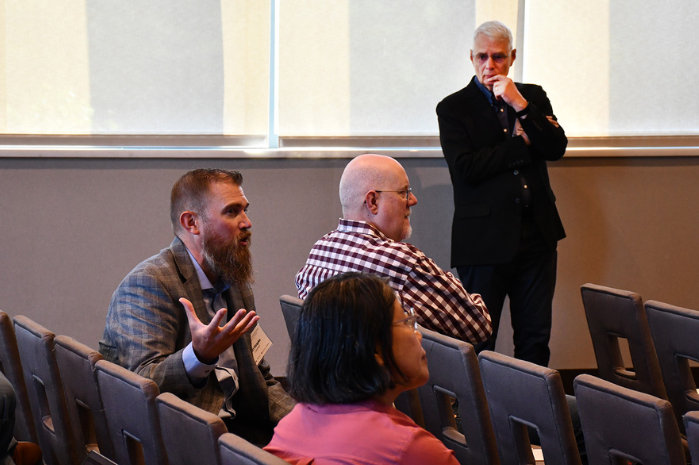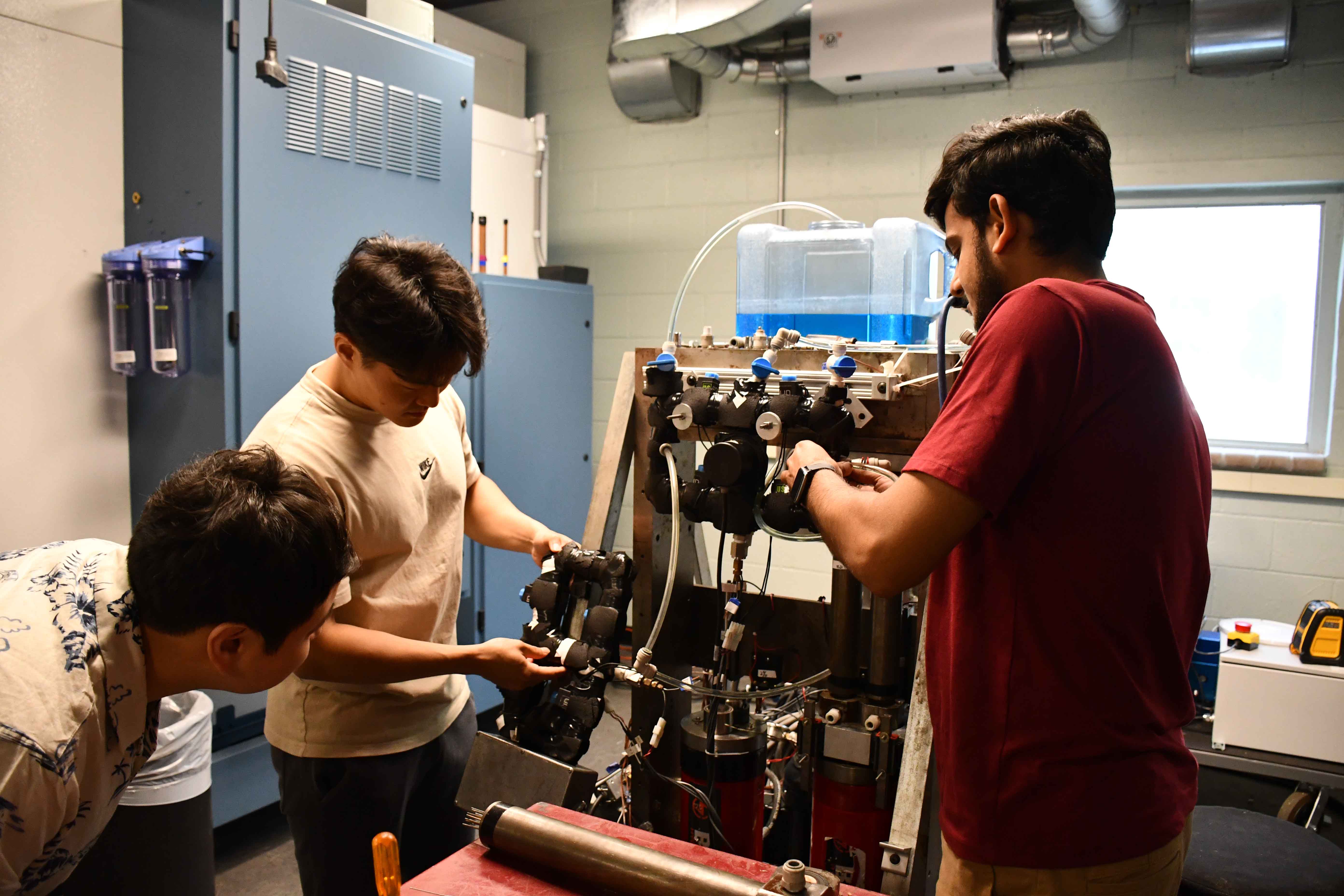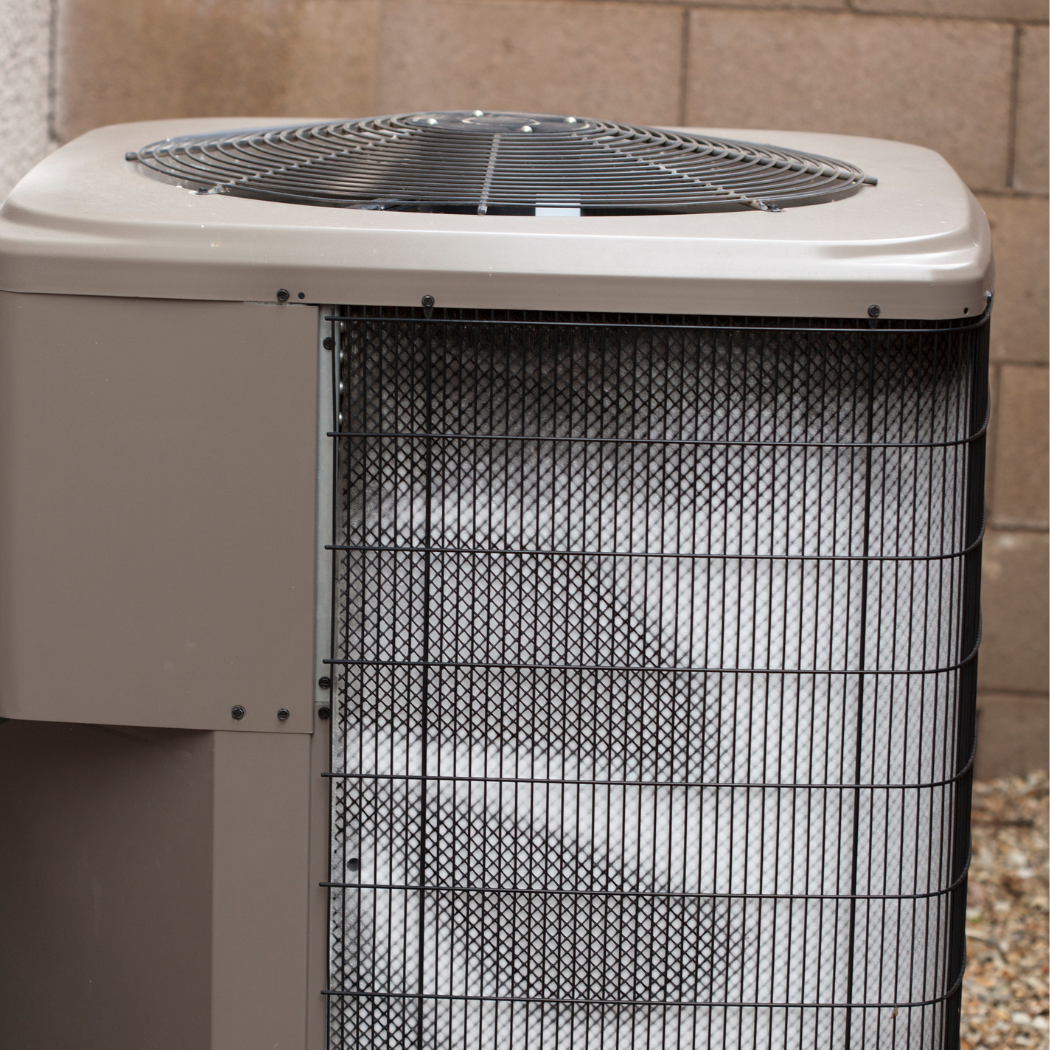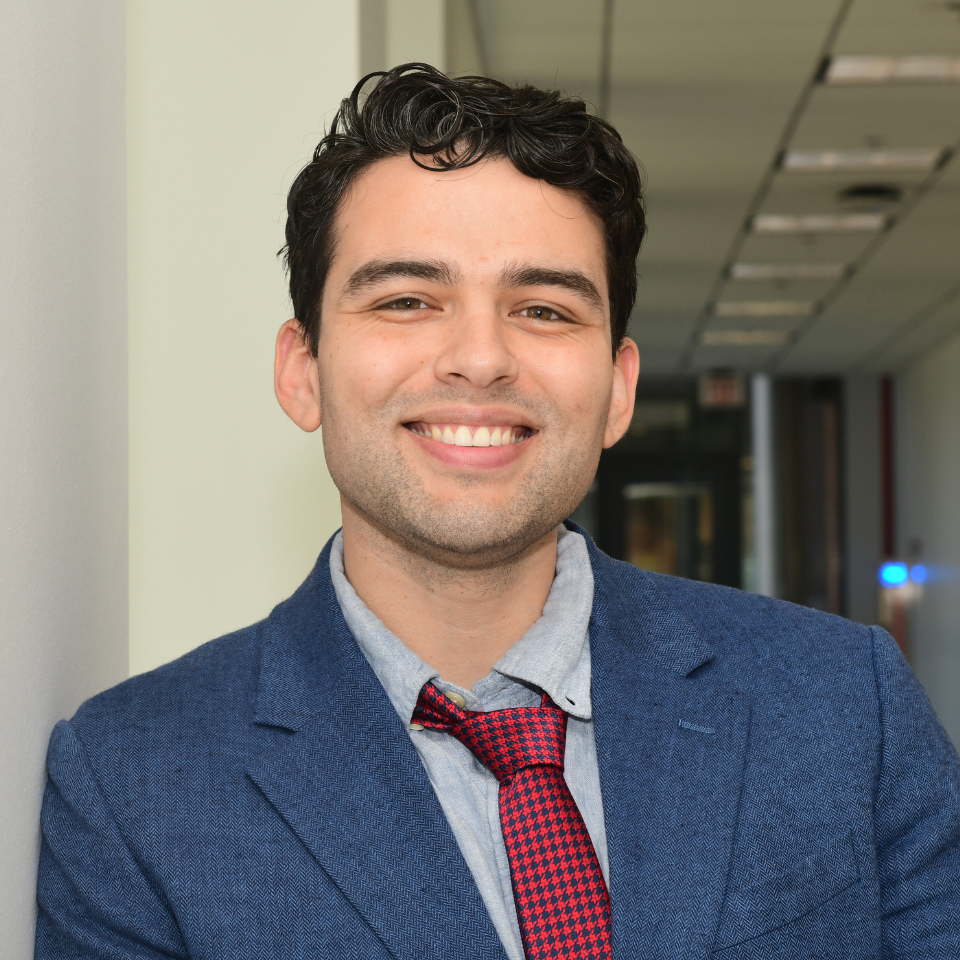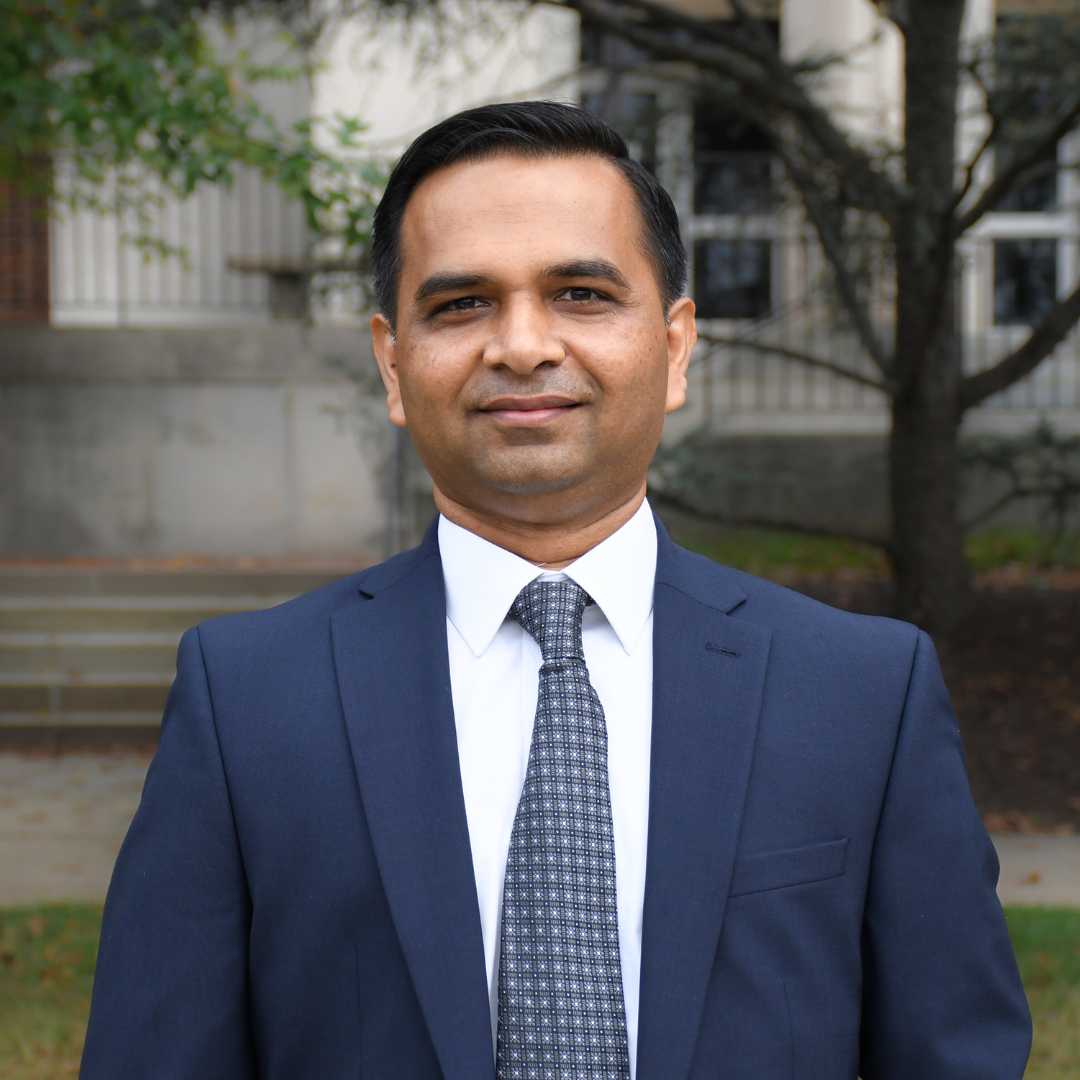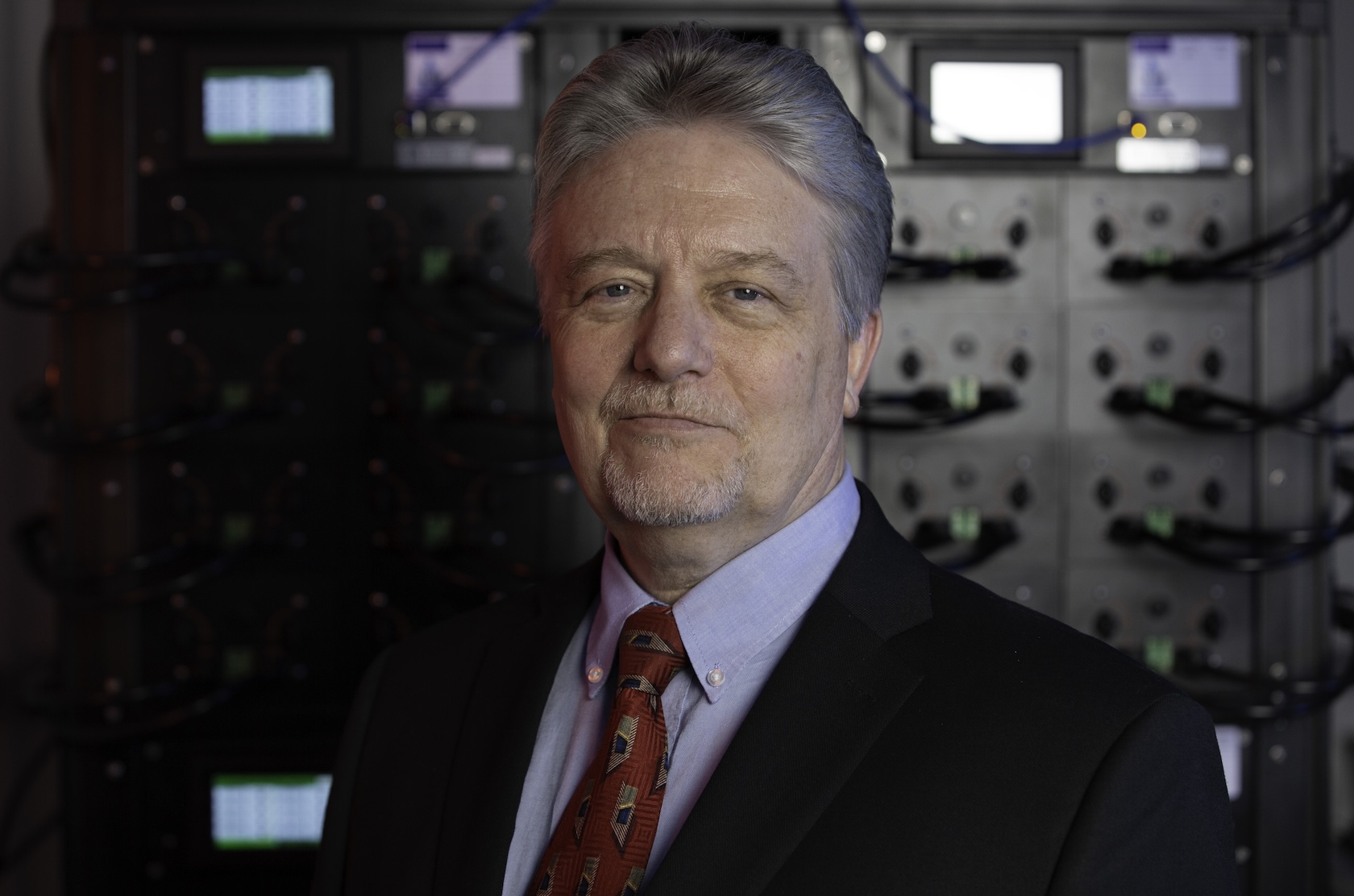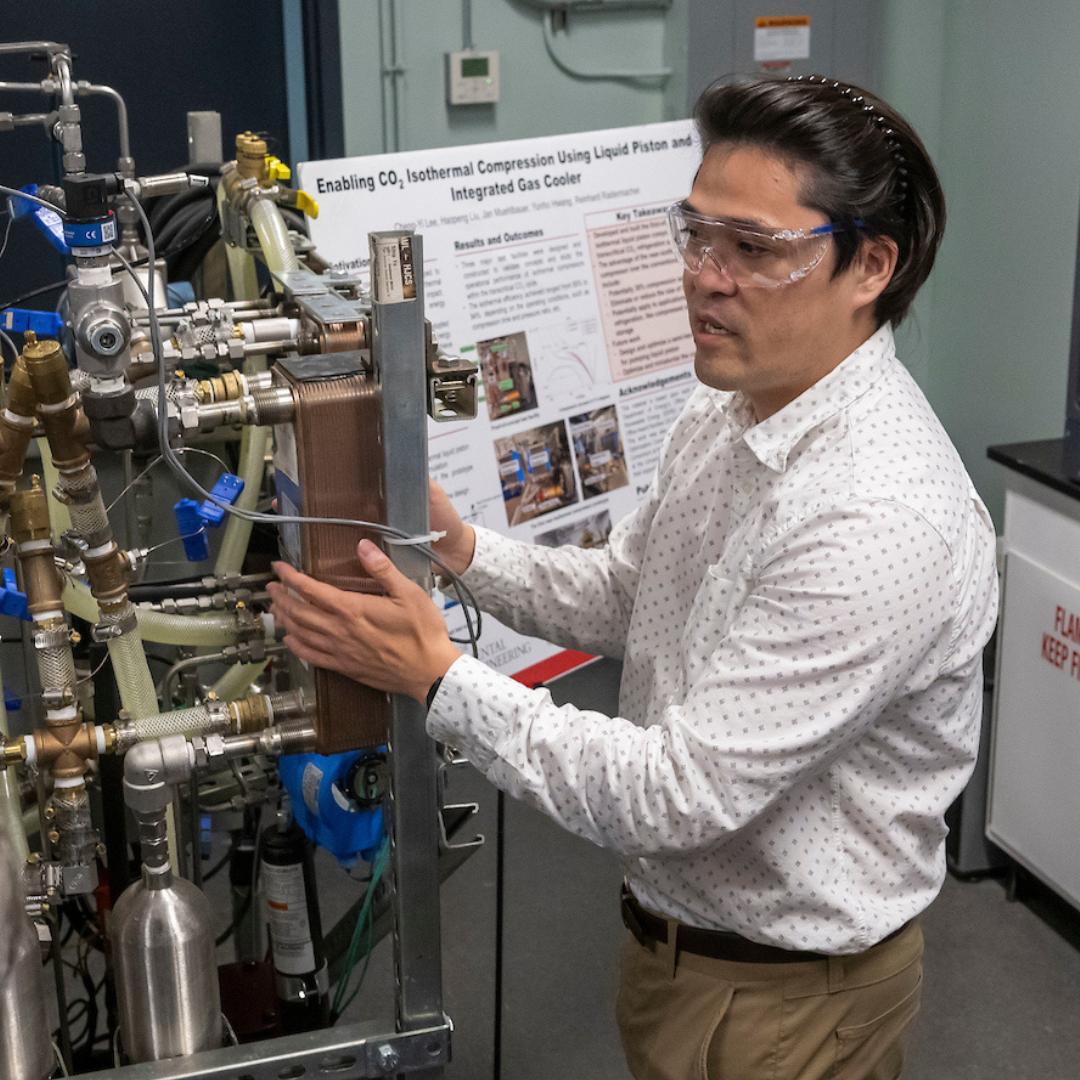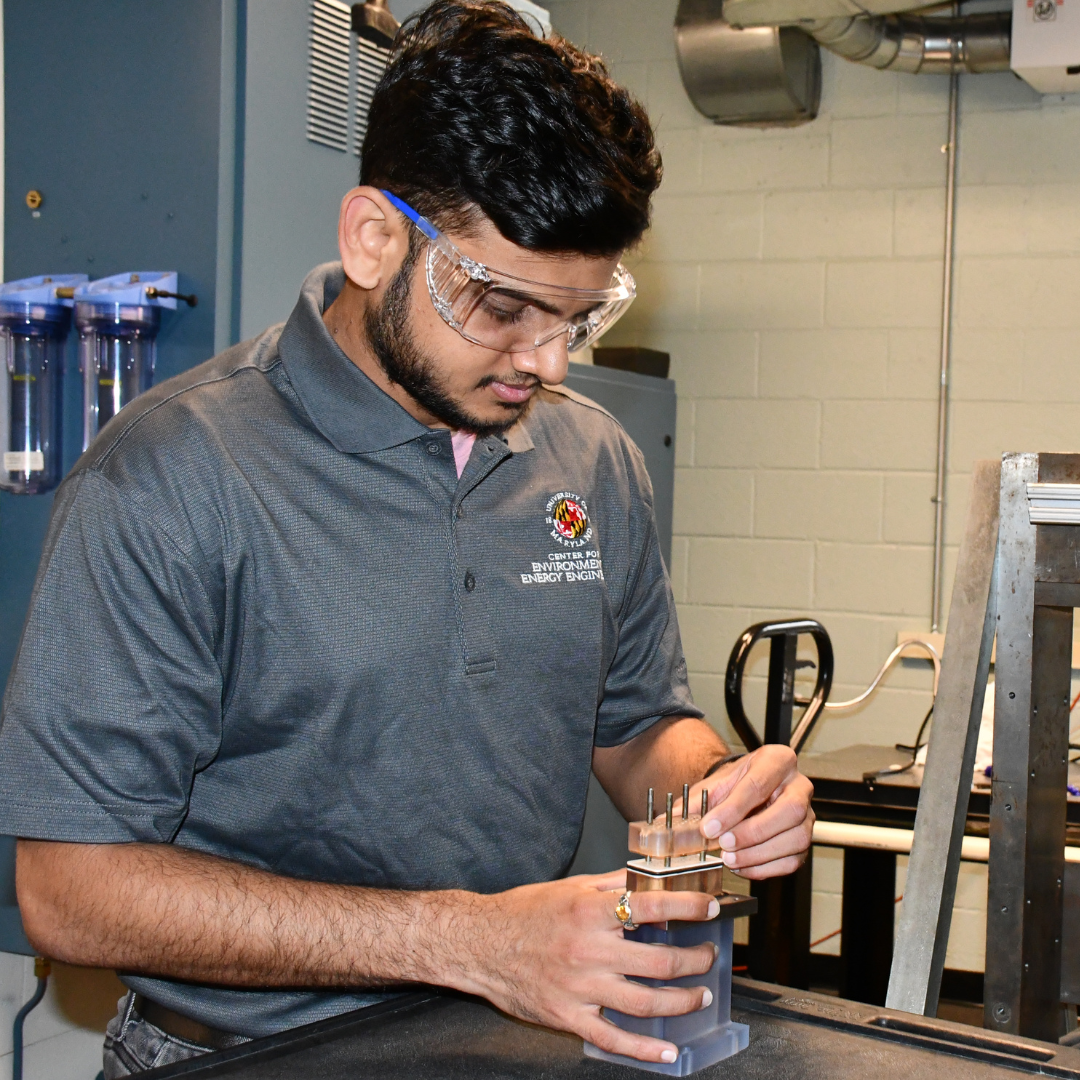News Story
International HVAC&R Experts Meet at UMD to Tackle Climate Change
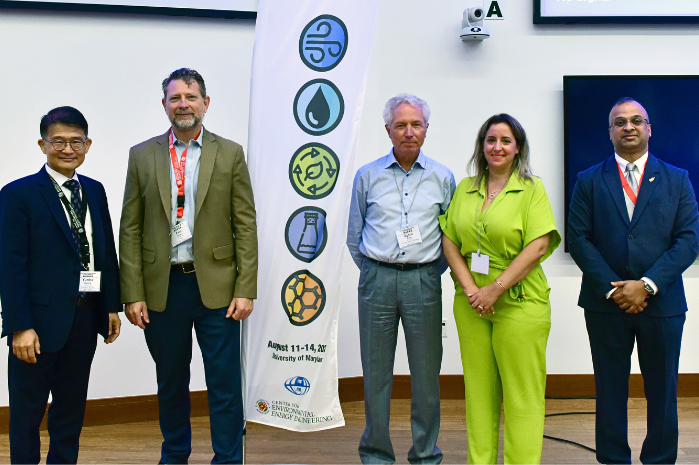
CEEE Co-Directors Yunho Hwang (far left) and Vikrant Aute (far right) with plenary speakers Eric M. Smith, vice president and technical director of The International Institute of All-Natural Refrigeration, and Björn Palm, senior professor at KTH, Royal Institute of Technology, and Yosr Allouche, IIR director general elect
As our planet grapples with the escalating climate crisis—marked by rising temperatures and increasing demands for cooling and heating solutions—the need for sustainable technologies has never been more urgent. Nearly 250 international experts on sustainable heating and cooling technology gathered at the University of Maryland in August to explore innovative solutions to help mitigate climate change during the 16th IIR-Gustav Lorentzen Conference on Natural Refrigerants. The University of Maryland Center for Environmental Energy Engineering (CEEE) was honored to host this globally important conference of the International Institute of Refrigeration (IIR) that brought together stakeholders from 23 countries.
Current air conditioners depend largely on high-GWP hydrofluorocarbons (HFCs), while many of our heating systems rely on fossil fuels. Both technologies contribute to climate change.
CEEE Co-Director Yunho Hwang opened the conference by calling on participants to work together to address this crucial issue. “Let’s focus on the pressing challenges ahead: the growing demand for cooling and heating systems—projected to reach 6 billion—and the associated issues of refrigerants and energy consumption,” Hwang said.
In her opening remarks, IIR Director General Elect Yosr Allouche stressed the critical need for solutions, noting that the global average atmospheric carbon dioxide concentration reached a record high of 420 ppm in 2023, and that excessive CO2 levels have led to rising temperatures. She emphasized the need to phase down HFCs at a faster rate to slow the climate crisis.
Plenary Presentations
Four plenary speakers shared their perspectives on how to grapple with the climate crisis by turning toward natural refrigerants, which are eco-friendly but have their own limitations and safety concerns. They spoke about the need to innovate systems that address crucial issues, including toxicity and flammability.
Björn Palm, senior professor in energy technology at KTH Royal Institute of Technology in Stockholm, presented a European perspective on hydrocarbon heat pumps. He discussed how the phaseout of fossil fuels mandated by the Paris Agreement has led to the electrification of the heating sector and a boom in heat pump sales throughout the European Union. He noted that 13 European countries have announced bans on fossil-fuel heating equipment and that there is a proposal to ban any PFAS substances in the EU, which would include all HFC and HFO refrigerants. The result of this expected legislation is that most European heat pump manufacturers are developing equipment that relies on natural fluids, mainly propane.
"Let’s focus on the pressing challenges ahead: the growing demand for cooling and heating systems—projected to reach 6 billion—and the associated issues of refrigerants and energy consumption."
CEEE Co-Director Yunho Hwang
Eric M. Smith, vice president and technical director of The International Institute of All-Natural Refrigeration (IIAR), highlighted IIAR’s role in natural refrigerant advocacy and standards. “We aim to build a better world through the safe and sustainable use of natural refrigerants,” Smith said. A non-profit professional society and trade association, IIAR develops and maintains ANSI standards and other safety guidelines. Currently, the organization is developing a safety standard for closed-circuit refrigeration systems utilizing hydrocarbon refrigerants. IIAR also conducts related research projects, including recent investigations of the dispersion of ammonia in cold rooms and in the atmosphere.
Hannes Fugmann, head of the Vapor Compression Technology group at the Fraunhofer Institute for Solar Energy Systems in Freiburg, Germany, focused on R290 (propane) heat pump developments in Europe. He stressed that R290 is efficient and climate-friendly but that manufacturers must address its flammability with safety concepts. He discussed the need for charge reduction—improving safety by decreasing the amount of propane needed. Breakthroughs in component R&D are leading to lower-charge systems, Fugmann said, highlighting the latest developments on achieving water-to-water heat pump systems with less than 150 g charge.
Zahid Ayub, president of Isotherm, Inc., called for a return to “time-tested natural refrigerants” ammonia and carbon dioxide, which are climate-friendly. “Both have a history of over 100 years [of being used as refrigerants] and have been applied safely.” But both have impediments: Ammonia can be toxic; carbon dioxide is a high-pressure refrigerant with a lower critical point, giving it limitations and safety concerns. Ayub spoke about the need to develop systems that compensate for these issues and stressed the importance of innovating low-charge systems. He emphasized urgent research needs for natural refrigerants in refrigerant distribution, controls, defrost systems, oil-free compressors for ammonia and the development of standards for CO2 systems.
Conference Highlights
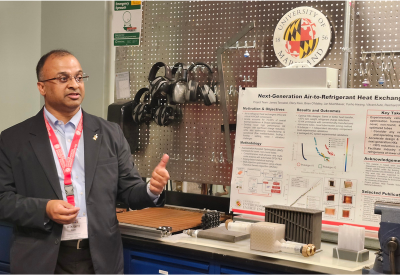 More than 120 conference attendees toured UMD's labs. CEEE Co-Director Vikrant Aute was among the researchers who presented during the tour.
More than 120 conference attendees toured UMD's labs. CEEE Co-Director Vikrant Aute was among the researchers who presented during the tour.In total, 136 papers were presented across 27 sessions, including eight papers by CEEE researchers, who shared their latest work on heat exchangers, heat pumps and system modeling. More than 120 conference attendees attended a university lab tour, where they got a behind-the-scenes look at research on sustainable HVAC&R technology being conducted by CEEE and other UMD researchers.
Conference highlights included the workshop "Decarbonization Through Adopting Low-GWP Refrigerants,” which included speakers from the U.S. Department of Energy and ENOUGH, a European project to decarbonize the food chain.
Conference Proceedings of the 16th IIR-Gustav Lorentzen Conference will soon be available to purchase from IIR. Conference attendees have been notified about how to access the papers at no cost for a limited time.
Published September 18, 2024
